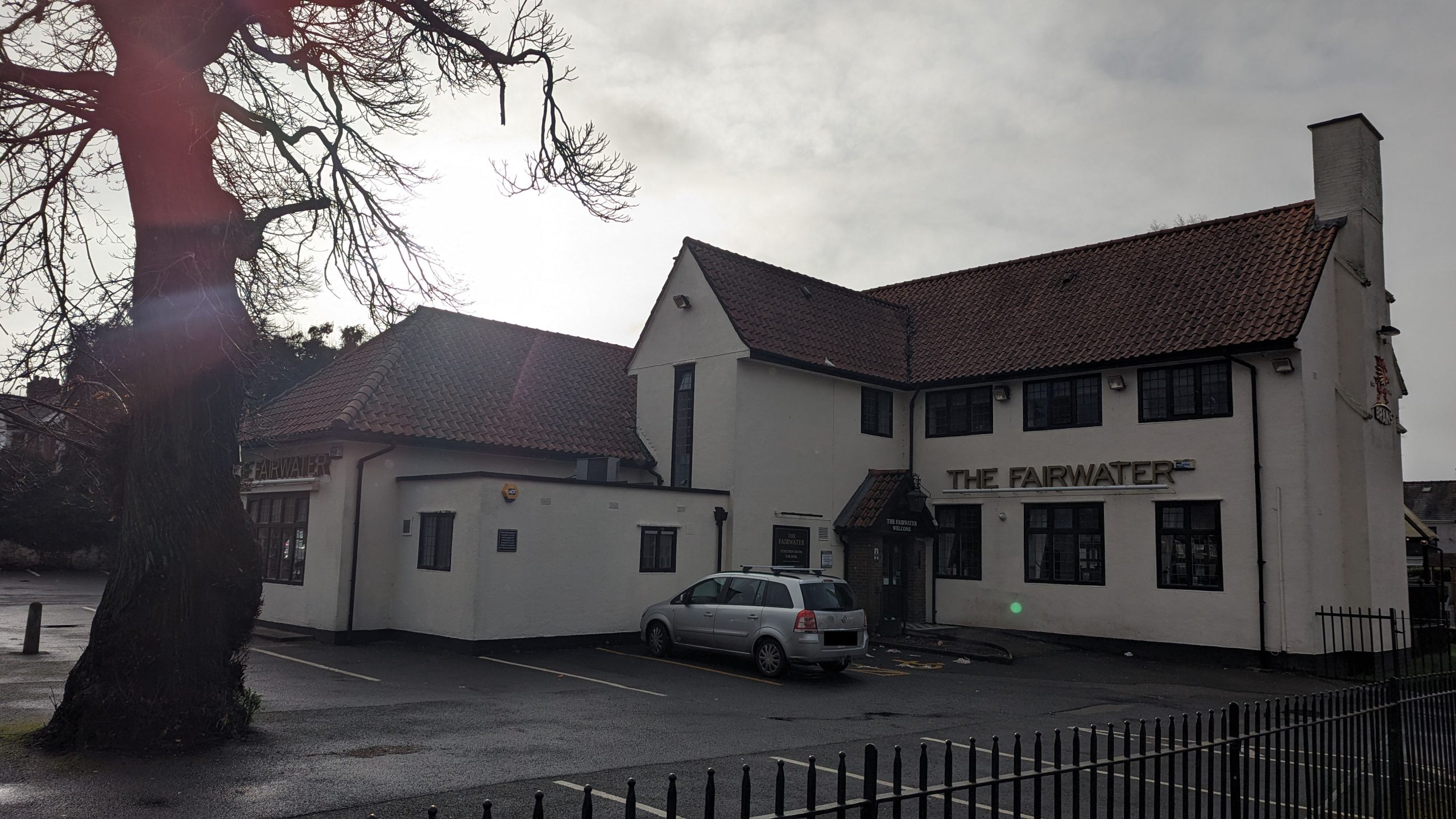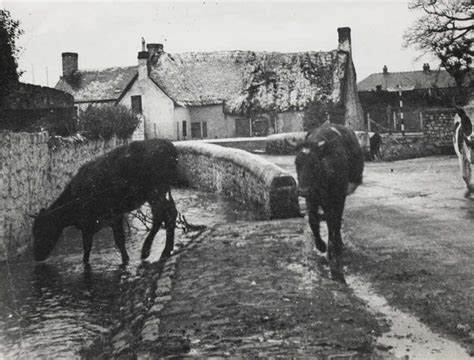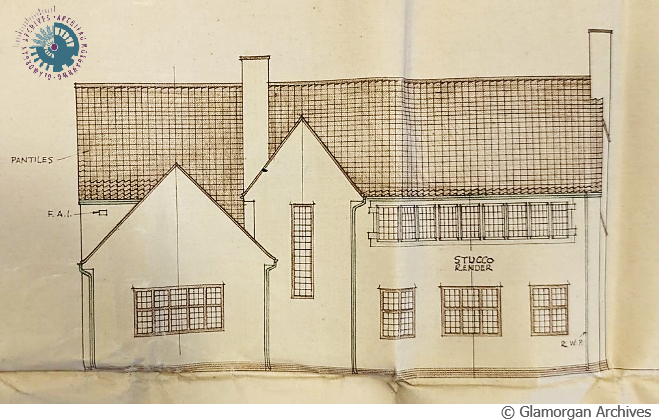
This proposed listing forms part of the draft Cardiff Local Heritage List - Public Houses, Hotels and Clubs (current and former)
Building reference
15 The Fairwater HotelDate
c.1938Ward
FairwaterHistory
The farming lands of Fairwater were originally owned by the Bishop of Llandaff. In 1553 the lands were sold to Miles Mathew (who owned many acres in and around the area).
A few centuries later, Fairwater was passed on to the Romilly family, and then in 1852 to William Cartwright (from which Cartwright Lane takes its name). In the early 1900’s, just over 100 people lived in the rural hamlet, mainly centred around Fairwater Green.
The 1846 tithe map shows a small farm homestead occupied by William James on the site of the Fairwater, a thatched building of some antiquity (see photo).
In the late-1930s, this property burned down and was replaced by the Fairwater Hotel.1
The building was, however, clearly marked on the OS map of 1940 as a ‘club’ and Glamorgan Archive records show that the building was originally constructed in c.1938 as ‘Fairwater Conservative Club’ to the designs of Sir Percy Thomas.2
The principal east-west range featured a Club Room at ground floor and a Lecture Room at first, both taking up much of the plan, with services confined to the eastern end. The single storey outshot to the north housed a Billiard Room (with stair hall adjacent) and the long range to the south houses a Skittle Alley with fireplace and inglenook seating (accessed via a single storey flat roof lobby).
Percy Thomas also designed new addition to the east in 1938: a single-storey Caretaker’s accommodation.
A spot listing request has been made to Cadw for this building (20/12/2023).
1 See: Cardiffians.co.uk – History of the Suburb of Fairwater https://www.cardiffians.co.uk/suburbs/fairwater_and_pentrebane.shtml#:~:text=Fairwater%20became%20a%20suburb%20of,Plasmawr%20Road%20began%20to%20disappear.
2 Fairwater Conservative Club moved to occupy their present building in 1941. For more on Sir Percy Thomas see: https://biography.wales/article/s2-THOM-EDW-1883
Description
A large, Arts-and-Crafts inspired building of roughly cruciform plan located upon a prominent and generous plot to the corner of Cartwright Lane and St Fagan’s Road.
Steeply pitched red pantile roof with white rendered walls, leaded casement timber windows and large rectangular chimney stacks formed in brick.
The principal, two-storey range it set east-west, with further, single-storey extensions to the western end. A two-storey staircase wing extends to the north, set lower than the main building, with a canopied entrance to its western elevation. A longer, single-storey entrance wing is set into its eastern side, which also runs back into the principal range.
To the rear, a long single-storey bowling alley range extends to the south, its western front overlooks the garden, with a breakfront (with parapet) and central chimneystack (now curtailed). Flat roof lobby to the rear now stands at two storeys.
Reason
A substantial building in a prominent location. Interesting early-C20 Arts and Crafts design, by the hand of the pre-eminent Architect Sir Percy Thomas.
High Aesthetic, Historical and Communal value.
References
Glamorgan Archives
BC/S/1/32954
Fairwater Conservative Club, Cartwright Lane adj St Fagans Rd
1938 – Architect: Percy Thomas – Developer: S A Brain Ltd
1 plan plus elevations
BC/S/1/33294
Caretakers Quarters, Connected to Conservative Club, Fairwater
1938 – Architect: P Thomas – Developer: Conservative Club
1 plan plus elevations
BC/S/1/44404
Proposed bottle store for off-licence shop, The Fairwater Hotel, St. Fagans Road
1954 – Architect: Ivor Jones & John Bishop – Developer: S. A. Brain & Co.
1 Plan including Elevations
DCONC/6/47a-e
Fairwater Hotel, St. Fagans Road
1946-1954 – Possible Plans
DSA/123/7
The Fairwater Conservative Club, St. Fagans Road, Cardiff
1938-1939 – [Client may be S.A. Brain & Co. Ltd.]
5 Papers relating to Stephenson & Alexander, Auctioneers and Chartered Surveyors, Records
Additional images

Farmhouse on the site, occupied by William James in 1846.

Elevation to St Fagans Road, P. Thomas 1936

